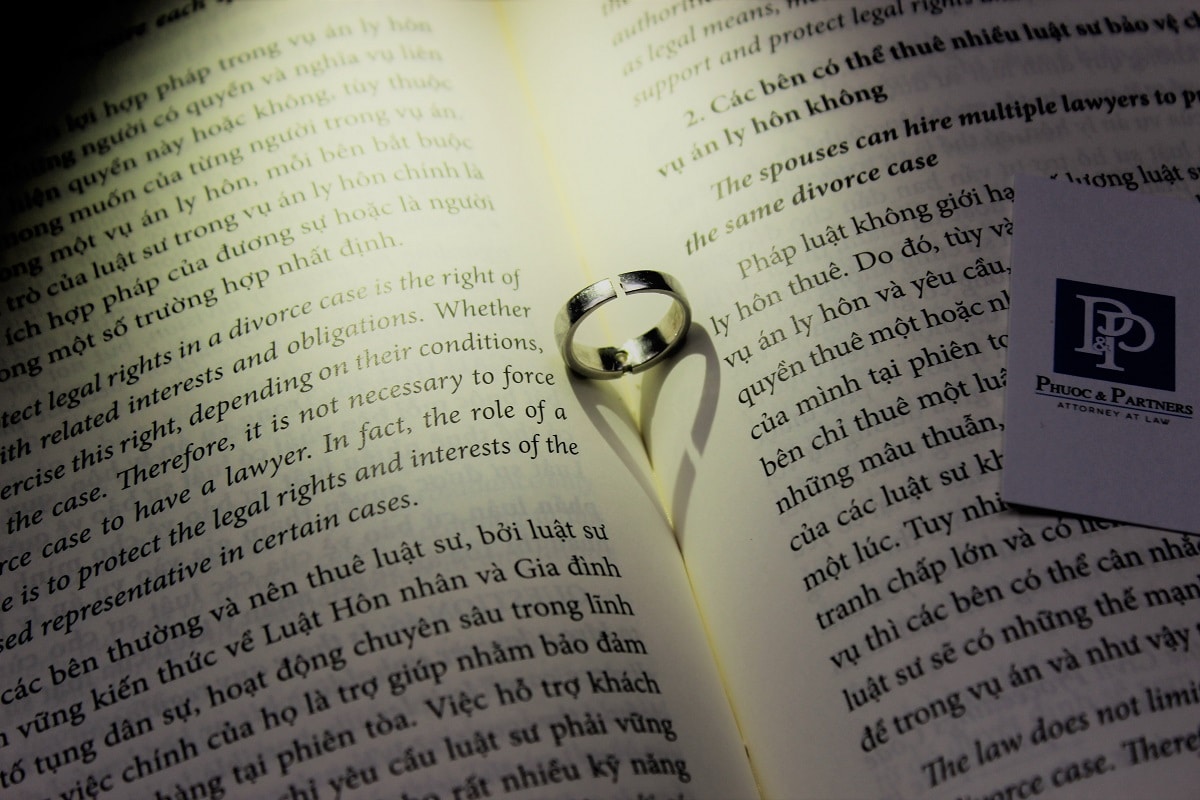The capital contribution in an enterprise is the total value of assets contributed or committed to contribute by a member to a limited liability company[2]. According to Article 4.7 of the Law on Enterprises, an enterprise is an organisation with its own properties. The assets of the company acquired in the initial stage after its establishment are contributed by its equity members. Therefore, after contributing capital to the company, the equity members no longer own the properties since it has been converted into the capital contribution to the enterprise. Therefore, the division of common properties of the spouses is the portion of capital contribution in the multi-member limited liability company and not the division of contributed assets nor the properties of the company.
When fully contributing the committed properties to the company, the equity members will be granted by the multi-member limited liability company a certificate of full capital contribution. This certificate shall be the basis for exercising the rights of its equity members within the confirmed capital contribution in accordance with the law and the company’s charter.
However, the division of common properties of the spouses as capital contribution is not the division of the physical capital contribution certificate. Properties are objects, money, valuable papers, and property rights. The properties thus include real estate and movable property[4]. Accordingly, the capital contribution can be regarded as a property right. This property right is specifically expressed in that the holder of the contributed capital has the right to profit from the business results of the company, transfer the contributed capital to others, pay the debt by the contributed capital, etc. Therefore, the division of the common property which is the capital contribution in the limited liability company can be made by one of the following options:
- Based on the willingness to ensure the legitimate interests of each spouse in production, business, and occupation, as well as the characteristics of property which cannot be divided, the Court may divide its capital contribution in a multi-member limited liability company to a spouse who has a legitimate interest in the production, business, and occupation associated with the contributed capital. The Court will also require that spouse to pay the amount corresponding to the difference in property value to the other spouse having no such interests as above[6]. It should be noted that the value of capital contribution at the time of division is not based on the company’s charter capital, but on the property value in the company’s accounting books; and
- Also according to the above principle, if both the spouses have a production and a business relationship attached to the company, for example that the husband is a member who is granted the capital contribution certificate by the company while the wife is the director cum legal representative of the company in the enterprise registration certificate, the Court may base its reasoning on the Law on Enterprises in order to divide the capital contribution by requesting the husband to give a portion of the capital contribution to his wife so that both become equity members of the company.
Although both above options are legally recognised, the spouses should agree to pursue the first option so that the process of division can be quicker and easier if it is simple to divide the property value.
For the
division of properties, whether it is during the
marriage period or after divorce, knowing if the spouses have come to an agreement as to
whether the company will accept in changing the owner of capital contribution
or not is a matter of concern. The applicable Law on Enterprises only
stipulates the transfer of the right to share capital through gifts between the spouses. In this case, the given person being still the
married spouses will
automatically become a capital contributor of the company without requiring the consent of the members’
council[8]. At that time, the gift contract was considered as
a legal basis for the company to carry out the procedures for changing
capital-contributing members. Based on the applicable legal provisions, the
agreement on the common property division of spouses is not considered as a legal basis
for the company’s transfer of rights. In
addition, when dividing common properties of the spouses after divorce, since the marriage relationship is no longer available, it will give rise to the fact
that the contract of giving the capital contribution as
gift must be approved by the members’ council of the company. Assuming that the
members’ council does not accept the gift as mentioned above, there is no current provision
in the law to tackle this situation. However,
from the authors’ perspective, it can be considered
that the division made by the Court through judgements
or decisions might serve to transfer these rights. Although the current Law on Enterprises does not have a specific provision on the matter, according to Article 65 of Decree 78/2015/ND-CP, “Within 15 working
days starting
from the effective date of the Court’s judgement or
decision, the person requesting registration for changes in the enterprise’s
registration content or any other
content related to enterprise registration under a Court decision” may be
considered as one of the grounds for the transfer
of rights after such division of the common properties. In other words, after the
spouses conduct the division of common properties through the Court or divorce judgement
requiring property settlement, it may be considered as a basis for the company
to re-establish the rights of capital-contributing members.
[2] Article 4.21 of the Law on Enterprises 2014.
[4] Article 105 of the Civil Code 2015.
[6] Article 59.2, 59.3 of the Law on Marriage and Family 2014.
[8] Article 54.5 of the Law on Enterprises 2014.
If you would like more information on how we can assist you with divorce issues, please contact us at: +84 (28) 36223522 or email us at info@phuoc-partner.com

